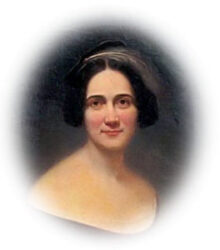CHARLESTON, S. C, November 8, I860.—Yesterday on the train, just before we reached Fernandina, a woman called out: “That settles the hash.” Tanny touched me on the shoulder and said: “Lincoln’s elected.” “How do you know?” “The man over there has a telegram.”
The excitement was very great. Everybody was talking at the same time. One, a little more moved than the others, stood up and said despondently: “The die is cast; no more vain regrets; sad forebodings are useless; the stake is life or death.” “Did you ever!” was the prevailing exclamation, and some one cried out: “Now that the black radical Republicans have the power I suppose they will Brown¹ us all.” No doubt of it.
I have always kept a journal after a fashion of my own, with dates and a line of poetry or prose, mere quotations, which I understood and no one else, and I have kept letters and extracts from the papers. From to-day forward I will tell the story in my own way. I now wish I had a chronicle of the two delightful and eventful years that have just passed. Those delights have fled and one’s breath is taken away to think what events have since crowded in. Like the woman’s record in her journal, we have had “earthquakes, as usual”—daily shocks.
At Fernandina I saw young men running up a Palmetto flag, and shouting a little prematurely, “South Carolina has seceded!” I was overjoyed to find Florida so sympathetic, but Tanny told me the young men were Gadsdens, Porchers, and Gourdins,² names as inevitably South Carolinian as Moses and Lazarus are Jewish.
From my window I can hear a grand and mighty flow of eloquence. Bartow and a delegation from Savannah are having a supper given to them in the dining-room below. The noise of the speaking and cheering is pretty hard on a tired traveler. Suddenly I found myself listening with pleasure. Voice, tone, temper, sentiment, language, all were perfect. I sent Tanny to see who it was that spoke. He came back saying, “Mr. Alfred Huger, the old postmaster.” He may not have been the wisest or wittiest man there, but he certainly made the best after supper speech.
¹ A reference to John Brown of Harper’s Ferry.
² This and other French names to be met with in this Diary are of Huguenot origin.
